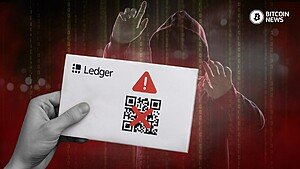Itaú Unibanco, the largest bank in Brazil and Latin America, has taken a significant step in embracing the future of finance.
The bank has announced the launch of bitcoin trading services for its more than 60 million customers, a move that could significantly boost the adoption of digital currencies in the region.
This development marks a major milestone for Itaú Unibanco and its customers. Through the bank’s investment app, Ion, users can now buy and sell bitcoin (BTC).
This service was initially available to a select group of clients in December 2023, but the positive feedback from these early users has led to a full rollout.
Guto Antunes, head of Itaú Digital Assets, explained the bank’s decision that the acceptance of the bitcoin trading service was extremely positive. He stated: “The entire custody solution was designed and implemented within Itaú with our fiduciary duty in mind.”
He added:
“We have a stake and a partnership with Liqi, but nothing in terms of custody. The entire custody solution, since it was conceived, has been done with architecture and fiduciary duty within Itau.”
It’s worth mentioning that Liqi is a Brazilian fintech company that specializes in the tokenization of assets using blockchain technology.
The company aims to democratize access to various investment opportunities by transforming traditional assets, such as real estate, receivables, and even private equity, into digital tokens like bitcoin that can be easily bought, sold, and traded.
Before making the service available to all customers, Itaú Unibanco conducted a trial period. The bank offered digital assets trading to a select group of clients and monitored their response through weekly surveys.
The feedback was overwhelmingly positive, indicating strong demand for these services.
Antunes highlighted the bank‘s cautious strategy, stating that they first gauged customer interest in the new service before fully launching it. The positive feedback led them to make the service available to all customers.
Itaú Unibanco prioritized security in its new digital-asset venture by developing an in-house custody solution for clients’ bitcoin wallets.
This ensures that each customer’s assets are segregated and secure. Antunes emphasized that this approach guarantees the safety and independence of customers’ holdings.
This in-house solution means that Itaú Unibanco does not rely on third-party custodians, which adds an extra layer of security for its users.
The Ion app, which facilitates the digital-asset trading services, has already seen significant interest.
According to Antunes, the app has surpassed 3.5 million downloads across Android and iOS devices. While the exact number of active users has not been disclosed, the high download figures indicate strong interest in bitcoin among Itaú Unibanco’s customer base.
Antunes described the app’s popularity as “significant for the crypto space and surprising,” highlighting the growing interest in digital assets among the bank’s customers.
Currently, the Ion platform only supports Bitcoin and Ethereum, the two largest digital assets by market capitalization.
However, Itaú Unibanco is considering expanding its offerings to include more digital assets in the future. The bank is awaiting clear regulations from Brazil’s central bank regarding stablecoins before proceeding with their inclusion on the platform.
Antunes stated:
“It starts with Bitcoin, but our overarching strategic plan is to expand to other crypto assets in the future. We are aligned with the central bank in the development of regulation, and we want to grow in the right way.”
The decision by Itaú Unibanco to offer bitcoin trading services to its vast customer base is expected to drive mainstream adoption of digital currencies in Brazil.
As the largest bank in the region, Itaú’s move could encourage other financial institutions to follow suit and offer similar services.
For many Brazilians, this development provides an accessible and trustworthy way to enter the bitcoin market. By using a familiar and reputable bank, users can buy and sell digital currencies without the need to navigate unfamiliar and potentially risky platforms.
The move by Itaú Unibanco comes at a time when Brazil’s bitcoin market is poised for significant growth. According to Statista, Brazil’s digital asset market could be valued at $1,094 million by the end of 2024.
Additionally, a report by Binance projected that Brazil’s digital-asset user base could grow to 11 million in 2024, if it maintains the growth rate observed in 2023.
These statistics indicate a booming interest in digital asset in Brazil, making it a strategic time for Itaú Unibanco to expand its services.
Now, by opening these services to all users, Itaú Unibanco aims to compete with local entities such as MB exchange, BTG Pactual’s digital assets unit Mynt, and global players like Binance in the Brazilian market.
Latin America is becoming a significant player in the global digital asset landscape. Other countries in the region, such as Argentina and Chile, are also making strides in bitcoin adoption and regulation.
In Argentina, a grassroots organization called Crecimiento plans to create a Bitcoin Silicon Valley in Buenos Aires. Meanwhile, Chile approved a new financial technologies law in 2023, paving the way for a more favorable regulatory environment for fintech companies.
Brazil’s leadership in the region is further emphasized by its role as the President of the G20 group of nations.
As part of its presidency, Brazil is working with global financial watchdogs to develop laws to regulate the Bitcoin and Web3 sectors. The country is expected to unveil the second phase of its new digital-asset rules by the end of 2024.
The adoption of bitcoin trading by Itaú Unibanco is not just about offering new financial products; it’s also about enhancing financial inclusion in Brazil.
Latin America is home to over 650 million people, of which 122 million are unbanked. For these individuals, digital assets can provide an accessible and efficient way to participate in the financial system.
By integrating them trading into its services, Itaú Unibanco is helping to bridge the gap for those who have been excluded from traditional financial services. This move could have far-reaching implications for financial inclusion and economic empowerment in Brazil and beyond.










